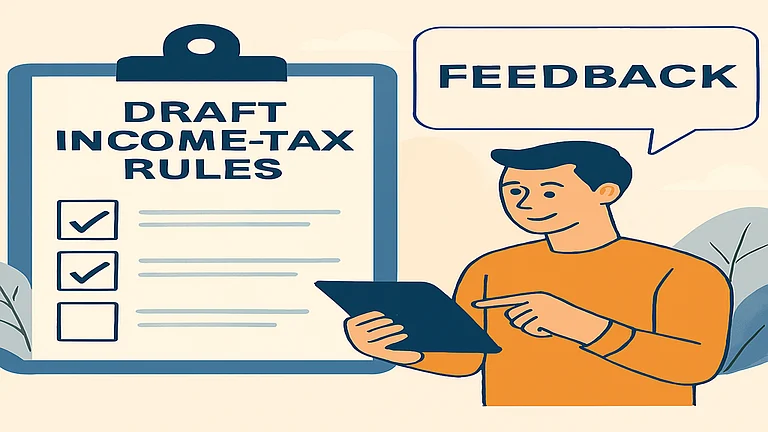Sponsored Content
The buzz on the deal dynamics between Reliance, Future Group, and Amazon is as sensitive as the bloodbath at Dalal Street. Lenders for their dues, customers for their vouchers, Amazon for its contractual rights are just a few of the business tangles to unravel.
Amidst several other shockwaves, the most recent was that of the Reliance deck packing up and abandoning the deal. This termination, of course, brought in suspense across the board rooms of India Inc. It has now become an active real-time case study for all the legal diaspora of the country.
It took approximately 600 work days to call off the Rs 24,713 crore takeover of the Future Group’s assets spanned across retail, wholesale, and logistics businesses. A negative vote by the secured creditors of the Future Group’s landmark vertical Future Retail clinched the calling off. This meant that the financial muscle behind Big Bazaar and Easyday Stores did not believe the deal terms worthy of their vote.
The stalemate left Future Retail with no other option than to go to the National Company Law Tribunal (NCLT) as lenders to recover the dues of Rs 29,000 crores under the Insolvency and Bankruptcy Code. The only good vibes that may have existed in the entire deal-breaking would have been those for Amazon, which has set a record in questioning the legal injunctions of deals, therebydelaying and stalling the deal in not one but various ways.
What’s Amazon’s Grudge?
In August 2019, Amazon had chipped in around Rs 1,500 crore for about 49% stake in the Future Coupons division, the promoter arm of Future Retail. This gave Amazon an indirect spike in gaining a 4.8% stake in the parent business shareholding, which led to its claim that, under its first refusal rights to acquisition of Fortune’s assets, the Future Group was clearly flouting their legal agreement by selling its assets to Reliance without Amazon’s due consent. It is pertinent to recall Amazon’s 2018 move when they bought the food and grocery retail chain from Aditya Birla Group, establishing the record of Amazon’s high aspirations.
Foreign Direct Investment (FDI) in India’s offline retail mode comes with tough specifications: India allows only 51% FDI in multi-brand retail under the government route, again subject to investors fulfilling a labyrinth of conditions.
Sweet Spot for Reliance
While the terms of the deal still remain in abeyance, Reliance has taken over 947 stores of Future Group, alleging non-payment of rent after transfer of the leases. These include 112 flagship Central and Brand Factory outlets of Future Lifestyle Fashions. This further empowered Reliance with possible access to the remaining Future Group assets at the NCLT, once again leaving only a few options for Amazon to gain from the deal. The capturing of stores showcases Reliance's might in sending out a clear message to any other player eyeing the Indian Retail space.
Amazon and the lenders, on the other hand, are willing to support Future Retail in every respect in getting back its stores. Its determination to continue the legal battle entails, among other things, exploring all possible regulatory hurdles to its claims in the deal.
In one of the latest developments, Amazon also considered impleading the Reliance Industries Ltd (RIL) group over the 950-store takeover, aiming to prevent the deal from sailing through smoothly. This was further voiced in the court debate, arguing that RIL had no rights in being a party to the case. Technically, the 28 lenders to the Future Group have the first right to take charge of the Group’s remaining assets, including those under RIL’s control.
Furthermore, Amazon’s tensions have escalated with the business losses it is incurring in respect of its deprivation of the sales of Big Bazaar products on its online platform. The value erosion is such that Amazon is hard put in finding a prospective buyer to help keep the Fortune Group in business. Hence, it stresses the urgency for the Group to be given charge of all its 950 -odd stores to continue its operations in an effort towards repaying the lenders and finding an appropriate buyer.
Not just one – but three of the most critical judicial authorities – Delhi High Court, Singapore International Arbitration Centre (SIAC), and the Supreme Court of India are engaged in delivering justice in the country’s most complex retail takeover debacle.
Contours of the deal
While on one hand, SIAC, via an interim order, has blocked any further transfer of assets from Future to RIL, this is not the final verdict. RIL has lowered its offer of $3.2 billion to around $2 billion, asking the creditors for the massive haircut, which is Rs 5,500 crores. And this was precisely the reason for the secured creditors’ rejection of the settlement termst.
Ironically, one of the 28 lenders, Bank of India, filed an application for initiating insolvency proceedings against the Future Group, overlookng the fact that the case may not be admissible, given that a large part of the assets in RIL’s takeover are already in dispute. There is, so to say, no asset worth the mention to auction.
The Crux
Irrespective of the outcome, Reliance will continue to make the best use of the strategic takeover it has successfully executed,establishing a unipolar position in the Indian retail market. The fall of India’s pioneer in retail business – Kishore Biyani -- seems to have paved the road for the Mukesh Ambani-led Reliance Group. The devaluation of Future Retail’s assets over the recent past also means that Amazon’s efforts have turned futile in every respect. However, the ultimate winner in the prolonged raging battle between the US e-commerce giant Amazon and India’s two leading retailers, Reliance and Fortune, is yet to receive the legal stamp of recognition.
The author is a Partner, J Sagar & Associates. The views expressed are personal and not of the firm.













